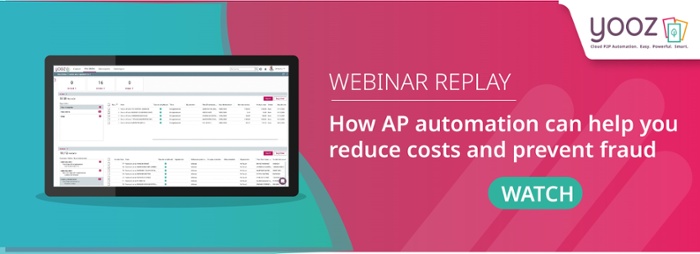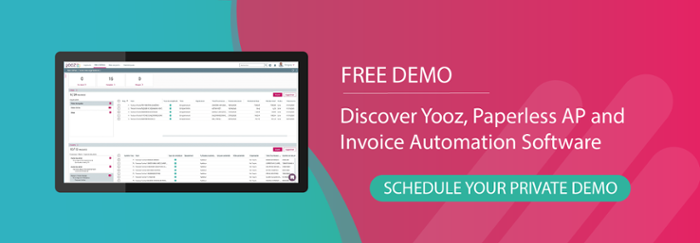Every day, organisations in the automotive industry manage frequent stock movements, significant volumes of data, as well as an increasing number of invoices. To meet these challenges, dealerships, multi-site garages and other professionals in the sector have a strong interest in AP automation, for automotive invoice management.
Specifics of the Automotive Industry
The automotive sector encompasses a wide variety of activities, including:
-
Sale of new vehicles
-
Sale of used vehicles
-
Automotive repair and breakdown services
-
Bodywork
-
Distribution of automotive equipment and spare parts
-
Technical inspection
Each of these different professions have their own specificities regarding invoicing and accounting, for example:
-
Car dealerships must take into account any incentives granted by manufacturers in their accounting, as well as expenses related to mandatory technical inspections before vehicle sales.
-
Garages selling used cars are subject to the VAT margin scheme (instead of the usual 20% rate on the total sale price).
-
Automotive companies and technical inspection centres must have precise knowledge of their turnover per employee to optimise workshop hours.
-
In general, automotive sector activities require very rigorous inventory management.

Digitalisation For Automotive Industry businesses
To address the challenges inherent in their business, automotive professionals can rely on digitalisation.
Digitalisation of Administrative Management
On a daily basis, dealerships and garages deal with numerous administrative tasks and have to comply with strict regulatory frameworks. Digitalisation centralises these formalities, simplifies their completion and ensures their compliance.
This includes:
-
Registration procedures: completing documentation related to the vehicle registration system through the Driver and Vehicle Licensing Agency (DVLA) can be complex. To streamline registration procedures, a company could integrate a dedicated interface within its Enterprise Resource Planning (ERP) software, that connects with the DVLA's systems. This integration would facilitate faster processing of registration requests and eliminate the need for redundant data entry.
-
Digital archiving: Cloud-based document archiving is another example of digitalisation in automotive organisations. This allows the company to store all its essential documents and records in a digital safe: invoices, quotes, repair orders, vehicle registration files, etc. Archiving ensures the security and confidentiality of accounting documents while centralising them in a common space, simplifying administrative work in case of audits.
Electronic Signature
Electronic signature is an essential factor when it comes to digitalising processes in the automative industry. Its various advantages include:
-
Adapts to all types of documents: electronic signature can be used for documents related to vehicle sales or automotive maintenance, repair orders, or the purchase of new or used vehicles.
-
Can be accessed from anywhere: thanks to electronic signature, it is possible to sign a document remotely using a simple email. But it can also be used on-site, via a computer, a touchsceen tablet, or a smartphone.
-
Increased security: electronic signature guarantees the authenticity and immutability of documents, limiting the risk of disputes with customers or tax authorities.

Digitalisation of Automotive Invoices
It is undoubtedly in the field of invoicing that digitalisation can offer the most benefits to the automotive industry.
The sector faces various challenges when it comes to Accounts Payable, starting with the issuance of a high number of supplier invoices for the different services: vehicle sales, automotive repair, sale of parts and accessories, maintenance and servicing, etc.
Frequent stock movements are common in the industry, due in particular to the purchase of spare parts, as well as a significant amount of information to manage, concerning both vehicles and customers and suppliers.
Digitalisation is therefore an opportunity to streamline the entire Procure-to-Pay process by eliminating paper, but also to reduce the time and resources required to perform tasks related to invoice management. And that’s without mentioning electronic archiving, an additional guarantee of security for organisations.
To take full advantage of all the benefits of digitalisation, the integration of invoicing software is therefore an essential step.

Features of Automotive Invoicing Software
Organisations in the automotive industry require invoicing management software that is tailored to their specific needs, often offering some of the following features and functionalities:
-
Automatic generation of garage invoices, as well as supplier credits, customer credits and customer discounts.
-
Inventory management, particularly of spare parts.
-
Customer file administration, with simple and fast access to past and current commercial documents.
-
Vehicle tracking.
-
Scheduling and monitoring of activity.
Advantages of Automotive Invoice Management Software
Electronic invoicing is an essential tool when it comes to improving the finance function of garages, car dealerships, and other technical inspection centres. Although subject to strict regulations, invoice digitalisation is an excellent way to stay ahead of regulations, while optimising company activity at various levels.
Streamlined Invoicing
Digitalisation greatly simplifies invoices management, including for:
-
Supplier invoices for vehicles and accessories sold in-store.
-
Supplier invoices related to mechanical parts used in the workshop.
-
Customer invoices issued after the sale of a new or used vehicle.
-
Customer invoices sent after automotive maintenance or repair services.
Cost Reduction
Digitalisation facilitates archiving and sending of documents to customers. The company therefore makes significant savings on printing and posting of invoices. Moreover, the automation of processes allows employees to focus on other tasks with higher added value.
Saving Time
Saving time is one of the main advantages of AP automation software, as invoices can be generated automatically from captured data.
Furthermore, AP automation also allows for the simultaneous editing of multiple invoices and quotes, as well as instant document duplication. Finally, purchase orders, delivery notes and other documents can be generated in a few clicks.
Decrease in Errors
Automotive invoice management software significantly reduces the risk of errors in accounting documents: incorrect amounts, omission of mandatory information, duplicates, etc. This is a significant advantage, as the slightest inaccuracy can lead to disputes with a customer or tax authorities.
Secure Processes
Invoice digitalisation allows for the encryption of confidential data in accordance with current regulations, including the General Data Protection Regulation (GDPR). Moreover, the tool is constantly evolving to adapt to the legal framework. An organisation using AP automation can therefore rest assured they are compliant with regulations, without having to constantly monitor legal developments.
As for invoice issuance, invoices can be sent by email with a secure download link, thereby avoiding the cumbersome management of a user account.
More Effective Monitoring
Invoice automation tools can be associated with automotive management software, such as an Enterprise Resource Planning (ERP) system, to create automatic reports for daily activity monitoring. The company benefits from a comprehensive view of its workshop and/or store, as it can easily access all its data from a single interface.
With time savings, risk reduction and a decrease in cost, the digitalisation of automotive invoices has many advantages for industry professionals. That’s why integrating supplier invoice management software with functionalities adapted to the specificities of the industry is essential for organisations who want to get ahead.
FAQs
What is a good strategy in managing accounts payable?
How can I be successful in accounts payable?
How do you improve accounts payable?
What are the 4 functions of accounts payable?

.jpeg)






